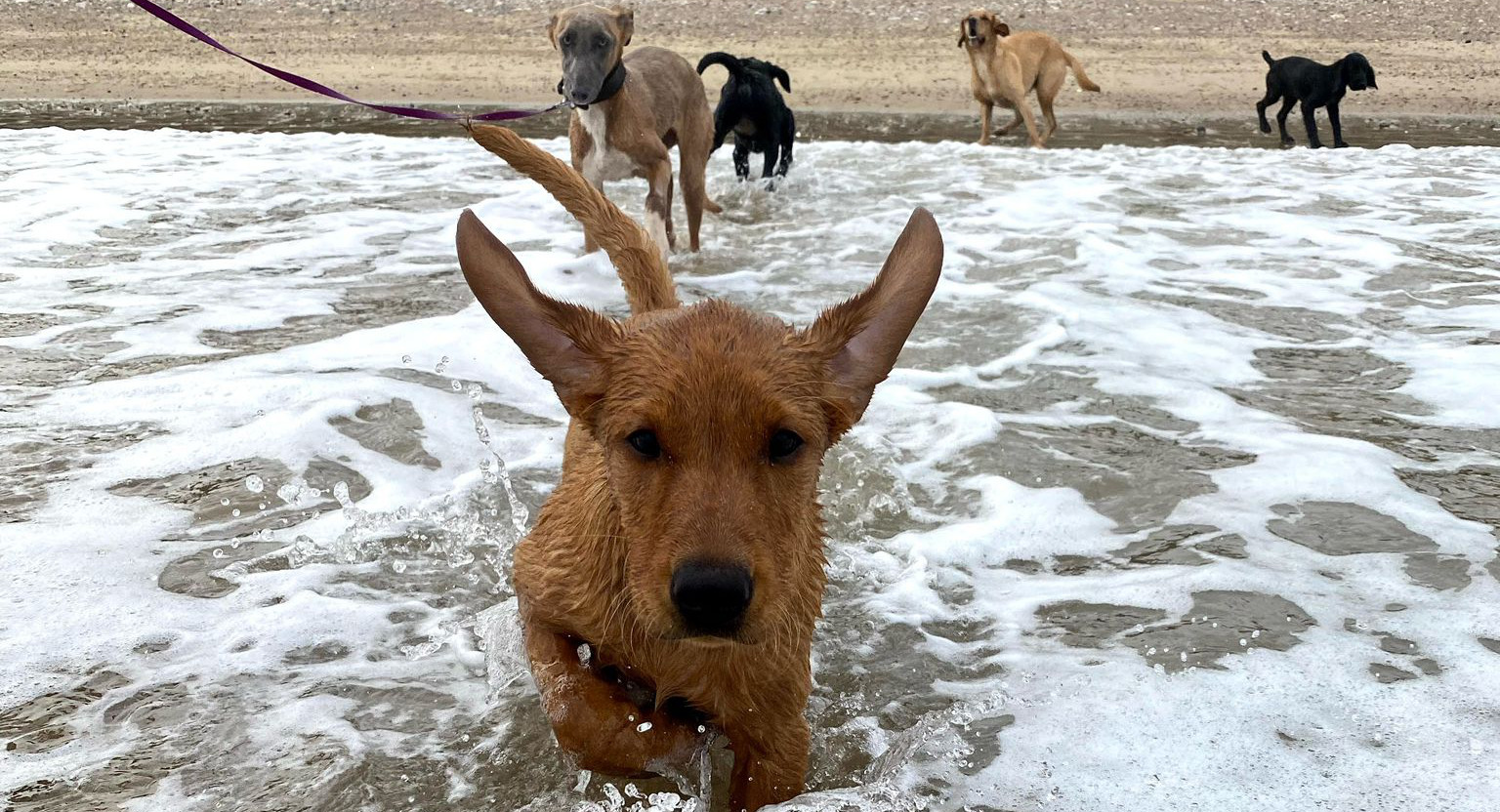
Raising puppies to prevent behaviour problems
Bringing a new puppy home is an exciting time for the family but can be an overwhelming experience for the pup – it is usually the first time the puppy has been separated from its mum, littermates, familiar people and surroundings.
The first few days and weeks in a puppy’s new home are significant in terms of emotional development – a puppy’s perception of the world can be permanently influenced by new experiences at this stage in its life.
Setting up puppies for success will help reduce stress and the potential for behaviour problems later in life.
The first few days
Dogs have a period of development between approximately three and 14 weeks of age where they are particularly sensitive to learning known as the socialisation period.
Puppies typically move into their new home during this sensitive period, so new owners are responsible for continuing controlled exposure to experience that a good breeder would already have commenced.
Carefully plan introductions to any existing pets. Inappropriate introductions to cats and small furries can lead to frightened small animals and a chase instinct in the puppy – both of which are difficult to alter once an association has been formed.
Where possible, place the existing small pets into an area of the house where the puppy is not going to have access initially and consider introductions once the puppy has had an opportunity to settle into its new home.
Scent transfers can be conducted before the puppy has been brought home during a visit to the litter, with cloths that have been used to stroke existing pets taken for the puppy to smell.
Introductions to existing dogs should also be thought through carefully to ensure a smooth relationship from the start.
Depending on the temperament of existing dogs, they may need to be on a lead and the puppy carried to allow you to remain in control of the situation.
Settled behaviour during the night is an important milestone and you need to set your routine from the first night. Leaving your puppy to cry can be a precursor for separation related behaviours, so ensure you provide your new puppy with company until they have fully settled into their new surroundings.
This will help prevent night-time distress. Remember that your pup has spent its nights with its mum and littermates and in the only environment it has ever known, so it is bound to find its first few nights in its new home difficult.
Best start in life
Teaching your puppy to remain relaxed when left at home alone is far more preferable than attempts to resolve separation distress. Young puppies typically sleep soundly and for long periods and these are ideal times to build up separation.
Create a safe area where your puppy will be left alone which includes a comfortable bed area as well as space for your puppy to play or rest elsewhere.
In addition, enrichment in the form of toys and activity feeders can be used to build independence and to create a positive association with this area, initially when you are home.
Socialisation with other dogs should commence before the puppy is fully vaccinated in a safe manner. Interaction with fully vaccinated, even-tempered adult dogs in private gardens is more beneficial to your pup than uncontrolled play with a group of puppies.
Appropriately run puppy classes can be beneficial, but it is vital that steps are taken to ensure the puppies find the experience positive.
Carrying your puppy out and about allows them to view the world safely – if they are struggling or trying to hide under your arm, they are probably finding the experience negative.
A puppy that is overwhelmed during their sensitive period of development has the potential to display fear related behaviours, in the same way as a puppy who has not been socialised.
Ensure that your puppy’s early experiences are positive and they are not forced into any situation they are uncomfortable with.

